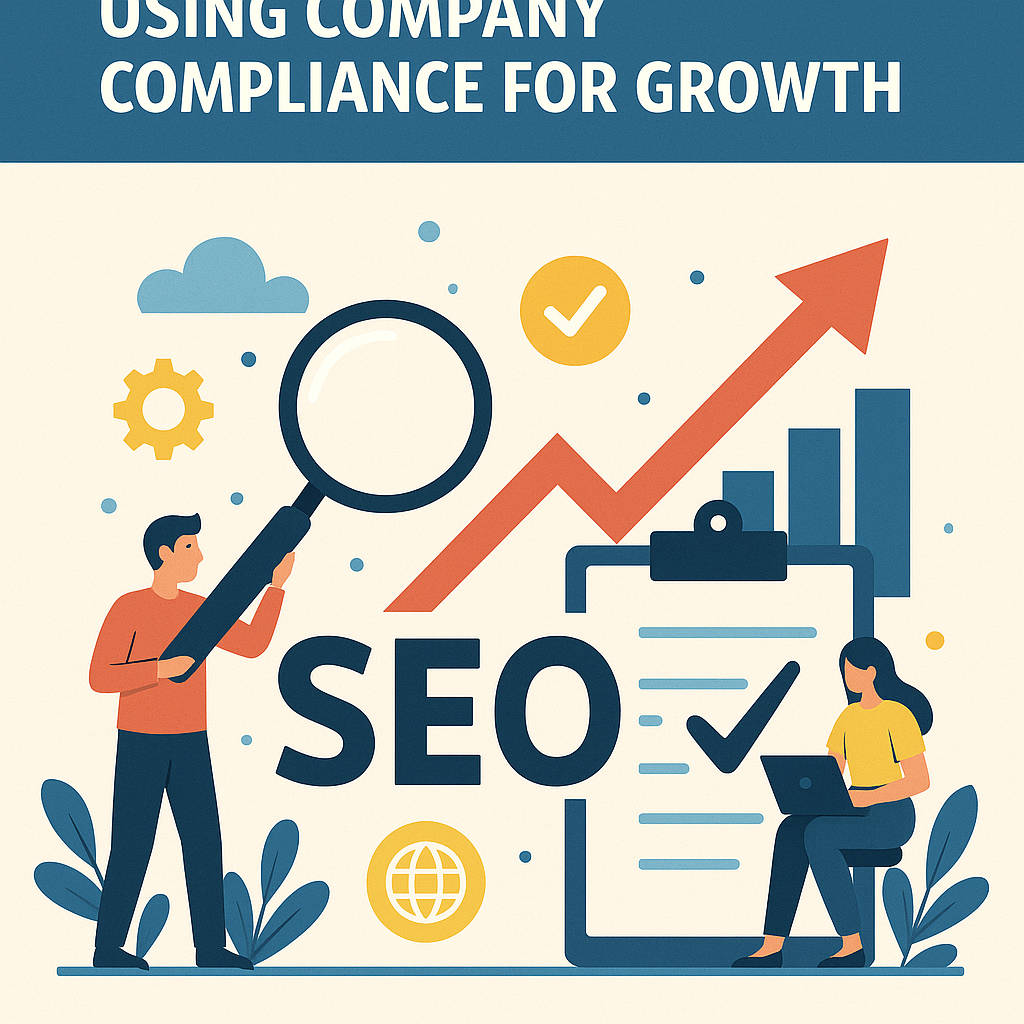Ultimate SEO Strategy: Using Company Compliance for Growth
In today’s highly competitive digital landscape, search engine optimization (SEO) is no longer confined to keyword targeting and backlink acquisition. Businesses aiming for sustainable online growth must adopt a broader, trust-oriented approach. One often-overlooked yet powerful element of this strategy is company compliance.
Aligning your digital presence with compliance requirements not only protects your business legally but also enhances credibility, trust, and visibility — all critical factors that influence your SEO performance. This article explores how integrating company compliance into your SEO strategy can drive long-term business growth.
Understanding Company Compliance in the Digital Era
Company compliance involves adhering to legal, regulatory, and ethical standards that govern your business operations. For digital businesses, this typically includes:
-
Company registration and statutory filings
-
Data privacy regulations (e.g., GDPR, India’s DPDP Act)
-
Accurate disclosures of company information
-
Website accessibility standards (e.g., WCAG 2.1)
-
Displaying legal policies such as terms of use and privacy policy
While these aspects are usually seen from a legal standpoint, they also play a significant role in influencing consumer trust and search engine confidence.
The SEO Value of Being Compliant
Search engines prioritize user trust and content reliability, which aligns perfectly with the goals of corporate compliance. Here's how compliance directly contributes to SEO:
1. Enhances Trust Signals (E-E-A-T)
Google evaluates websites based on Experience, Expertise, Authoritativeness, and Trustworthiness (E-E-A-T). Displaying legitimate business information, legal disclosures, and up-to-date policies improves your trust score, making your website more favorable in search rankings.
2. Improves User Experience (UX)
Regulatory compliance often demands that websites be secure, accessible, and transparent. A well-structured, compliant website reduces bounce rates, improves dwell time, and enhances mobile usability — all of which positively influence SEO metrics.
3. Supports Rich Snippets and Local SEO
Implementing structured data (schema markup) related to your company’s legal and organizational information helps search engines better understand your business. This can result in enhanced visibility in rich search results and local business listings.
Practical Ways to Integrate Compliance Into Your SEO Strategy
✅ 1. Display Legal Disclosures Prominently
Ensure your website includes:
-
Terms & Conditions
-
Privacy Policy
-
Refund/Cancellation Policy
-
Cookie Policy
-
Company Identification Number (CIN), GSTIN, or ROC details
These should be accessible from the website footer and crawled by search engines.
✅ 2. Leverage Compliance-Based Content
Develop educational content that showcases your knowledge of regulatory topics. For example:
-
“How Filing Annual Returns on Time Builds Business Credibility”
-
“Impact of Data Privacy Compliance on SEO and User Trust”
-
“Understanding MSME Registration Benefits for Indian Startups”
This not only targets long-tail keywords but also reinforces your authority in your niche.
✅ 3. Display Certifications and Industry Credentials
Badges such as ISO certifications, MSME registration, StartUp India recognition, or TRAI licensing can boost user confidence. Ensure these are verified and referenced in both on-page content and metadata.
✅ 4. Use Schema Markup for Organizational Transparency
Implement structured data for:
-
Organization(for general business info) -
LegalServiceorLocalBusiness(for legal or local visibility) -
WebPage(for privacy policy, terms, and contact pages)
This aids in generating rich snippets, FAQs, and even Google Knowledge Panel recognition.
✅ 5. Ensure Accessibility and Security
Maintain full compliance with:
-
Web Content Accessibility Guidelines (WCAG)
-
SSL/TLS encryption (HTTPS)
-
Cookie consent banners in line with data privacy laws
These elements not only ensure legal safety but also align with Google’s core web vitals and user-first ranking priorities.
Real-World Impact: Compliance as a Growth Lever
A professional services firm revamped its digital strategy to incorporate compliance-focused elements such as:
-
Including CIN and GST numbers in the website footer
-
Publishing privacy policies and data handling practices
-
Running blogs on legal requirements for startups
Results within 90 days:
-
40% increase in organic search traffic
-
25% higher average session duration
-
Enhanced presence in Google local pack listings
Conclusion: Compliance is the Future of Sustainable SEO
Compliance is no longer just a checkbox for legal departments — it’s a strategic asset for digital growth. A fully compliant website inspires user confidence, supports SEO best practices, and signals long-term reliability to search engines.
As SEO continues to evolve, trust will be the strongest ranking factor. Embedding company compliance into your SEO strategy today ensures your brand is not only discoverable but also dependable.
